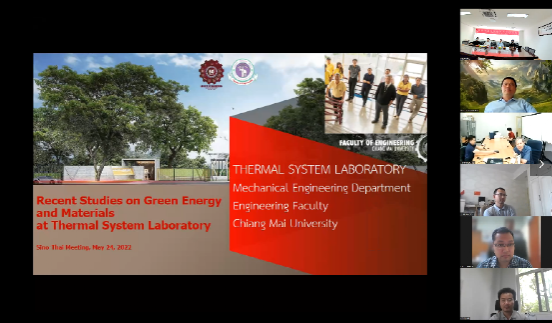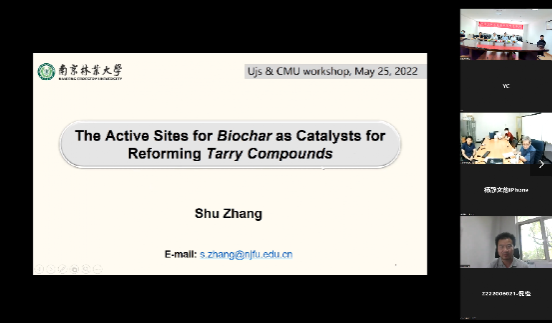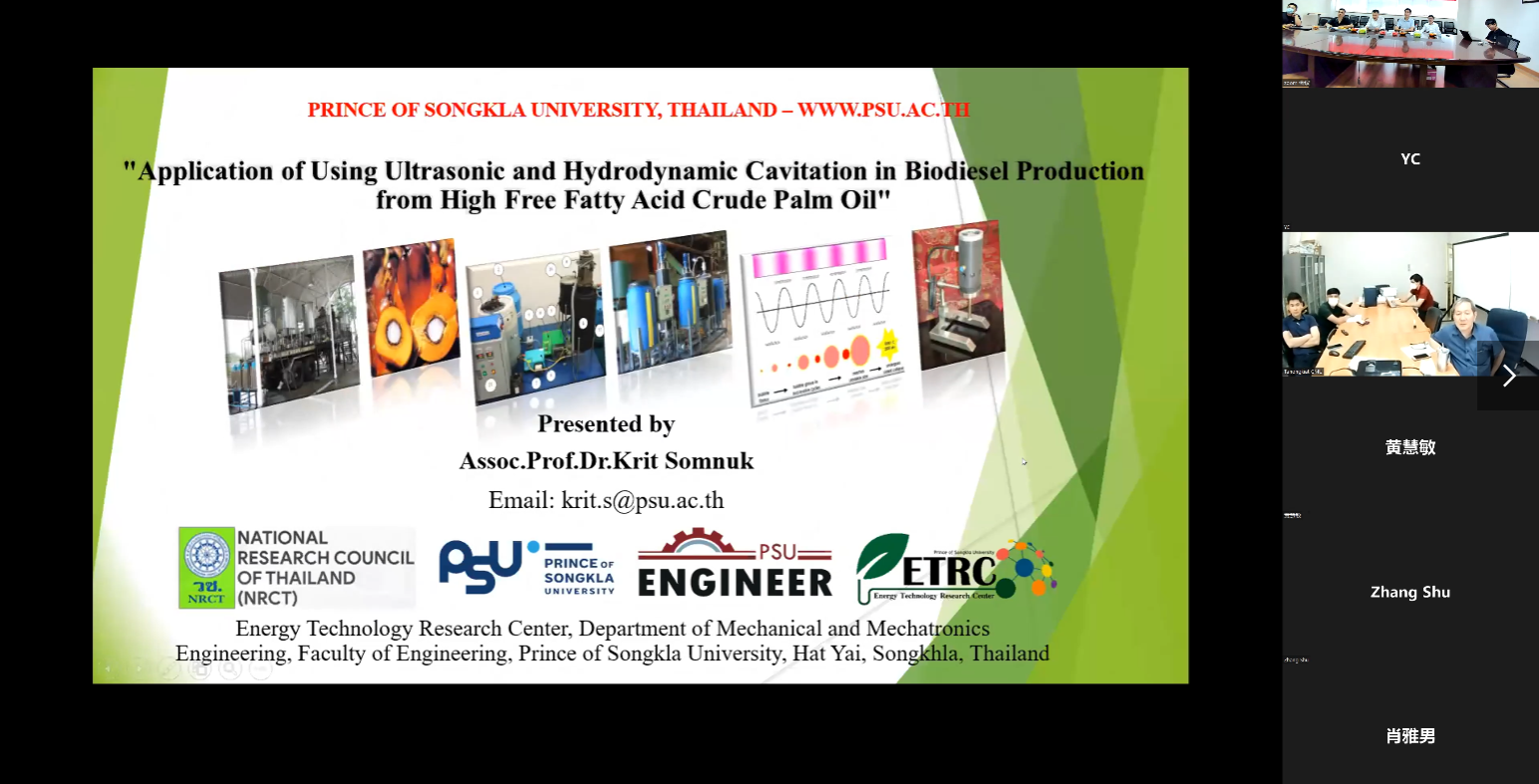Organized by Jiangsu University and Chiang Mai University, Thailand, the “Sino-Thai Forum on Renewable Energy and Carbon Neutrality” has been successfully held via online and offline meetings in May. Relying on the Sino-Thai International Joint Laboratory of Renewable Energy and Carbon Neutrality, the forum invites six experts and scholars from China and Thailand to give reports on the theme of “the Belt and Road Initiatives” and “carbon peak, carbon neutrality”. More than 200 faculty and students from Jiangsu University participate in the forum. The forum is co-chaired by Prof. Junfeng Wang, dean of the school of energy and power engineering of Jiangsu University, and Prof. Tanongkiat Kiatsiriroat of Chiang Mai University.


Prof. Tanongkiat Kiatsiriroat from Chiang Mai University, Prof. Krit Somnuk from Prince of Songkla University, Prof. Konlayutt Punyawudho from Chiang Mai University, Prof. Shu Zhang from Nanjing Forestry University, Prof. Shuang Wang, and Prof. Bin Li from Jiangsu University introduce the latest progress on ultrasonic and cavitation biodiesel preparation, green algae thermal conversion applications, and hydrogen production from high-temperature synergistically catalytic decomposition of biomasses, respectively. The forum has added a series of seminars by experts. Prof. Konlayutt Punyawudho gives a course report on fuel cells and their components for graduate students, introducing his research in polymer dielectric membrane fuels and energy storage. In the next six months, five experts from Thailand will give seminars on renewable energy and carbon neutrality for graduate and undergraduate students at Jiangsu University. This forum further enhances the mutual understanding and trust of researchers between China and Thailand in renewable energy, and lays a solid foundation for in-depth international cooperation under the Belt and Road Initiative.



In recent years, by implementing the “095 Project” of Jiangsu University, the school of energy and power engineering actively promotes “the Belt and Road Initiative”. The school has successively established friendly cooperation with universities in Thailand, South Korea, Egypt, Pakistan, Russia, and other countries and founded joint laboratories. Thailand is an important country for “the Belt and Road Initiative”. Jiangsu University and Chiang Mai University established the Sino-Thai Energy Innovation International Joint Laboratory in 2015 and the "Belt and Road" Sino-Thai Renewable Energy and Carbon Neutrality International Laboratory in 2021. On this basis, Jiangsu University has been approved by the Ministry of Science and Technology to set up the international cooperation platform of the “Belt and Road New Energy and Carbon Neutrality International Joint Research Center”. Other international cooperation platforms, including the Universities of Jiangsu Province “Renewable Energy and Carbon Neutrality International Joint Laboratory” have also been established. This forum was supported by the National Natural Science Foundation of China International Cooperation Key Project and the Ministry of Science and Technology's Foreign Expert Project.
